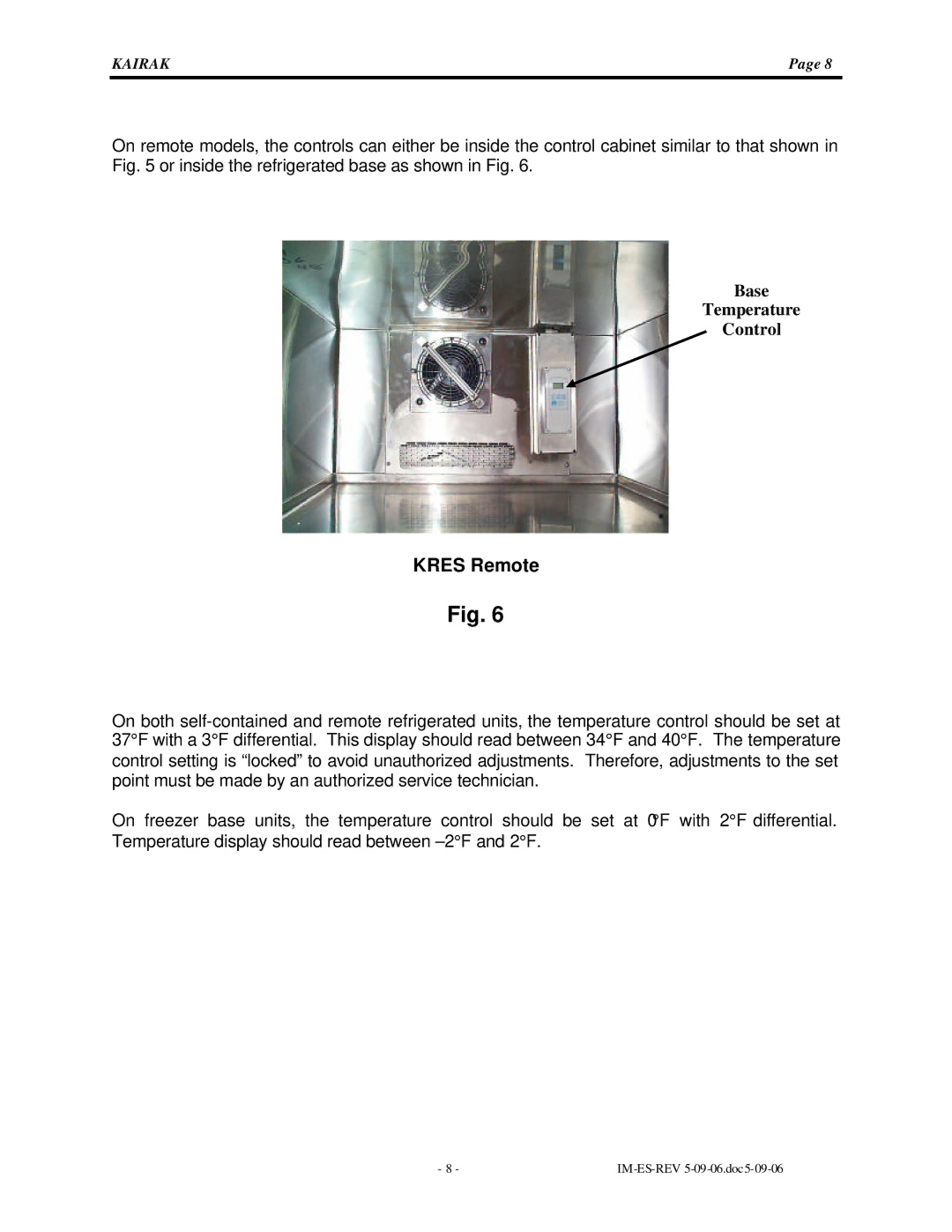KRES specifications
Kairak KRES is a sophisticated and innovative solution designed for various applications within the realm of renewable energy and smart technology integration. At its core, Kairak KRES stands for Kairak Renewable Energy Systems, a platform aimed at optimizing energy efficiency through advanced technological frameworks.One of the standout features of Kairak KRES is its modular design. This allows for seamless scalability and customization according to specific user needs. Users can easily adapt the system to fit their unique energy requirements without having to undergo extensive upgrades or modifications. This flexibility makes Kairak KRES ideal for both residential and commercial applications.
The platform utilizes cutting-edge technologies, including Internet of Things (IoT) connectivity and artificial intelligence (AI) for enhanced performance. Smart sensors integrated within the system gather real-time data related to energy consumption, solar power generation, and environmental conditions. This data is subsequently processed through AI algorithms to provide insights, enabling users to make informed decisions that optimize energy usage and reduce costs.
Kairak KRES also prioritizes sustainability by incorporating renewable energy sources. The system is compatible with various types of energy generation, including solar panels, wind turbines, and energy storage systems. This multi-source integration not only diversifies energy supply but also maximizes efficiency, ensuring a reliable energy stream regardless of external conditions.
Another defining characteristic of Kairak KRES is its user-friendly interface. The platform offers an intuitive dashboard that provides users with access to real-time analytics and performance metrics. Users can monitor their energy usage, track savings, and adjust settings according to their preferences—all from a single application.
In terms of connectivity, Kairak KRES supports various communication protocols, ensuring compatibility with existing smart home systems and IoT devices. This interoperability fosters an integrated ecosystem where users can manage multiple devices from a unified interface.
In conclusion, Kairak KRES emerges as a pivotal player in the renewable energy landscape, emphasizing modularity, AI-driven analytics, and multi-source energy integration. Its commitment to sustainability and user accessibility makes it a compelling option for anyone looking to harness the power of renewable energy while optimizing efficiency and reducing environmental impact. As the demand for smart energy solutions continues to rise, Kairak KRES is well-positioned to lead the way in the evolution of energy systems.

